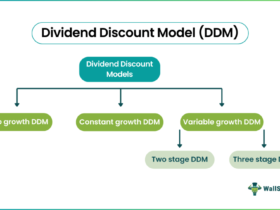1. Plan Your Day, Own Your Time
Why is Planning Your Day Important?
For new graduates entering financial institutions, the workload can feel overwhelming. Without a clear plan, it’s easy to lose track of priorities and waste time on less critical tasks. Effective time management allows you to stay organized, reduce stress, and maintain focus throughout the day. When you manage your time well, you not only meet deadlines but also create space for personal activities. Planning is the first step to achieving a healthy work-life balance and overcoming stress.
How to Plan Your Day Effectively
Start each day by identifying what you need to accomplish. A good approach is the “priority-first” method—begin with the most important tasks that require your full focus. Break larger assignments into smaller, manageable steps so they feel less intimidating. Use the morning, when your energy is highest, for difficult tasks and leave easier activities for the afternoon. Allocate specific time slots for each activity to ensure you stay on track. Additionally, leave some “buffer time” in your schedule for unexpected tasks or urgent meetings.
Tools to Help You Plan and Manage Time
Thankfully, there are numerous apps and tools to simplify time management:
| Google Calendar: Perfect for scheduling meetings and organizing your day. You can set reminders and share your calendar with colleagues. | |
| Trello: A visual task manager that helps you organize projects into boards and lists. Great for keeping track of ongoing tasks. | |
| Notion: An all-in-one workspace where you can plan to-do lists, set reminders, and track goals. | |
| Pomodoro Timer Apps (e.g., Forest, Focus To-Do): These tools encourage you to work in focused intervals (25 minutes of work followed by a 5-minute break) to improve concentration. |
By using these tools, you’ll develop a system that helps you stay organized, stress-free, and in control of your time.
2. Set Boundaries and Stick to Them
Why Setting Boundaries Matters
As a new graduate in a financial institution, you may feel the need to prove yourself by working late or constantly staying available. However, failing to set boundaries can quickly lead to burnout. Clear work-life boundaries protect your personal time, ensuring you have space to recharge and enjoy life outside of work. This balance is key to maintaining long-term productivity and mental well-being.
How to Set Healthy Boundaries
Begin by defining your work hours and communicating them to your manager and team. If your day ends at 6 PM, make it clear that you won’t respond to emails or calls after this time unless it’s urgent. It’s also important to avoid taking on more tasks than you can handle. If your workload becomes overwhelming, have an honest discussion with your manager about prioritizing tasks or extending deadlines.
Practical Tips for Maintaining Boundaries
When the workday ends, disconnect completely from work tools. Turn off notifications on your phone for email or work apps. Create a physical separation if you’re working from home—leave your workspace and switch to a personal activity. Use this time to focus on hobbies, relationships, or relaxation. By consistently respecting your boundaries, you train others to do the same.
3. Build a Healthy Routine
Why a Routine is Essential for Success
The fast-paced financial sector can drain your energy if you don’t take care of yourself. A healthy routine ensures you have the physical and mental stamina to manage long work hours and meet demanding deadlines. It’s not just about staying productive—it’s also about feeling good and reducing stress every day.
What a Healthy Routine Looks Like
A healthy daily routine includes three key components: sleep, nutrition, and exercise. Prioritize getting 7-8 hours of quality sleep each night to stay alert and focused. Start your day with a nutritious breakfast and avoid skipping meals. Regular physical activity, even if it’s a short walk or a home workout, boosts your mood and reduces anxiety.
Small Steps to Incorporate Healthy Habits
If you’re struggling to build a routine, start small. For instance, schedule 10 minutes each morning for stretching or deep breathing exercises. Replace unhealthy snacks with fruits, nuts, or yogurt to fuel your body throughout the day. Use fitness apps like Nike Training Club or 7-Minute Workout to incorporate quick exercises into your schedule. Consistency is key—even small efforts add up over time.
4. Manage Stress Before It Manages You
The Impact of Stress in the Workplace
The financial industry is high-pressure by nature, with tight deadlines and complex projects. If left unchecked, stress can affect your focus, productivity, and overall health. Learning how to manage stress early in your career will help you stay calm, resilient, and confident in handling challenges.
Techniques to Reduce Stress
One of the most effective ways to handle stress is by taking short, intentional breaks throughout the day. The Pomodoro technique—working for 25 minutes and taking a 5-minute break—can help you reset your focus. Practicing mindfulness techniques such as deep breathing or guided meditation can also calm your mind. Apps like Headspace or Calm offer short meditations specifically designed for busy professionals.
The Importance of Talking About Stress
If you feel overwhelmed, don’t keep it to yourself. Talk to a colleague, mentor, or trusted friend about what you’re experiencing. Sometimes, simply sharing your concerns can bring relief or lead to helpful advice. Many companies also offer counseling or wellness programs to support employees—don’t hesitate to use these resources.
5. Build a Strong Support Network
Why Support Systems Matter
Starting a career can feel isolating, especially in a demanding industry like finance. A strong support network, both at work and outside, helps you navigate challenges, gain guidance, and stay motivated.
How to Build Professional Relationships
In your workplace, seek mentorship from senior colleagues who can provide advice and insights into your role. Be proactive in asking questions, joining team discussions, and building relationships with teammates. Networking within your organization not only boosts your confidence but also creates a sense of belonging.
The Role of Personal Connections
Outside of work, invest time in your relationships with family and friends. Share your successes, challenges, and goals with them. Their support will provide you with emotional stability and encouragement when work feels overwhelming.
6. Make Time for Personal Passions
Why Hobbies Matter
Engaging in activities you love is a powerful way to disconnect from work and recharge. Hobbies provide a sense of fulfillment and joy, helping you return to work with renewed energy and focus.
Ways to Explore Personal Interests
Dedicate weekends or evenings to hobbies such as reading, traveling, playing sports, or learning a new skill. If you’re unsure where to start, explore online platforms like Skillshare or MasterClass to pick up creative hobbies.
How to Prioritize Personal Time
Treat personal time like an important meeting—schedule it into your day and stick to it. Whether it’s an hour for a hobby, a movie night, or a short getaway, these activities allow you to unwind and enjoy life beyond work.
7. Embrace Flexibility and Adaptability
Why Flexibility is Key in Financial Institutions
The financial sector often demands quick decisions, tight deadlines, and changes in workload. Flexibility and adaptability allow you to handle these challenges without feeling overwhelmed.
How to Stay Adaptable
Be open to feedback and use it as an opportunity to grow. If unexpected changes arise, adjust your plan without panicking. Balancing adaptability with healthy boundaries helps you manage challenges effectively while protecting your well-being.
8. Use Company Resources for Work-Life Balance
Take Advantage of Wellness Programs
Many financial institutions offer wellness initiatives like flexible work hours, gym memberships, and mental health support. Familiarize yourself with these programs and use them to support your well-being.
Seek Flexibility Options
If you’re struggling to balance work and life, talk to your manager about flexible schedules or remote work options. Many organizations are open to finding solutions that benefit both the company and its employees.
Final Thoughts
Balancing work and daily life as a new graduate takes effort, but with the right approach, it’s achievable. By planning your day, setting boundaries, maintaining healthy habits, and managing stress, you can thrive in your career while enjoying a fulfilling personal life. Start small, build good habits, and celebrate your progress as you create harmony between work and life.
























How refreshing it is to read about embracing passions! It feels like finding sunlight after a long storm. I can’t wait to explore my hobbies and fill my soul with joy!
Oh, how beautifully this piece speaks to my heart! Setting boundaries feels like building a cozy nest where I can rest and recharge. Thank you for this wonderful advice!
This article is like a gentle breeze, reminding us that planning can bring peace to our busy lives. I feel inspired to organize my days and find joy in the little things!
The wisdom in this post flows like a river of clarity! A healthy routine is indeed the foundation of happiness. I will cherish each step towards balance and well-being!
Your article helped me a lot, is there any more related content? Thanks!
Your point of view caught my eye and was very interesting. Thanks. I have a question for you.
Your point of view caught my eye and was very interesting. Thanks. I have a question for you.
Thanks for sharing. I read many of your blog posts, cool, your blog is very good. https://accounts.binance.info/register?ref=IJFGOAID
Your point of view caught my eye and was very interesting. Thanks. I have a question for you.
I don’t think the title of your article matches the content lol. Just kidding, mainly because I had some doubts after reading the article.
Thanks for sharing. I read many of your blog posts, cool, your blog is very good.
Your point of view caught my eye and was very interesting. Thanks. I have a question for you.
Thanks for sharing. I read many of your blog posts, cool, your blog is very good.
I don’t think the title of your article matches the content lol. Just kidding, mainly because I had some doubts after reading the article.
2cr5s2
Your article helped me a lot, is there any more related content? Thanks!
When it comes to expressing yourself through hair, then [url=http://www.dreadlocksart.com/curly-dreadlocks/]colorful synthetic dreadlocks[/url]
is exactly what you need. This online store specializes in all kinds of dreadlock styles, especially curly dreads, handcrafted for a natural and flawless look.
You’ll find top-notch wavy dreadlock extensions made from safe, lightweight fibers — perfect for both daily wear and special events. Whether you’re aiming for a soft beachy vibe with wavy locks, or prefer defined, voluminous looks like
curly end dreads, the variety is impressive.
Many clients choose styles like dread curly to highlight their facial features and add volume. Options such as curly loc extensions are ideal for quick installs, while dreadlocks for sale near me make this shop perfect for U.S. customers looking for convenience and speed.
Not sure what to pick? Popular collections include curly dreads women, or even vibrant and bold designs like synthetic ombre styles.
For those wondering [how long do curly dreads last], you’ll find detailed care instructions and options for short curly dreads — all reviewed by happy customers.
The store also offers localized options such as wavy dreadlock extensions near me, helping you find styles with fast delivery and easy tracking.
When you’re ready to transform your look, don’t settle for average — choose [url=http://dreadlocksart.com/curly-dreadlocks/]fake dreads for women[/url] for unmatched quality, variety, and style that reflects your identity.
n0vsyf
Can you be more specific about the content of your article? After reading it, I still have some doubts. Hope you can help me.
I don’t think the title of your article matches the content lol. Just kidding, mainly because I had some doubts after reading the article.
I don’t think the title of your article matches the content lol. Just kidding, mainly because I had some doubts after reading the article. https://accounts.binance.info/en-IN/register-person?ref=UM6SMJM3
Your article helped me a lot, is there any more related content? Thanks!
ycaezn
I don’t think the title of your article matches the content lol. Just kidding, mainly because I had some doubts after reading the article.
Thanks for sharing. I read many of your blog posts, cool, your blog is very good.
окна в рассрочку в москве – без переплат для физических и юридических лиц
I will immediately seize your rss as I can not find your email subscription link or newsletter service. Do you have any? Kindly let me realize in order that I may just subscribe. Thanks.
Can you be more specific about the content of your article? After reading it, I still have some doubts. Hope you can help me.
**mind vault**
mind vault is a premium cognitive support formula created for adults 45+. It’s thoughtfully designed to help maintain clear thinking
**mindvault**
mindvault is a premium cognitive support formula created for adults 45+. It’s thoughtfully designed to help maintain clear thinking